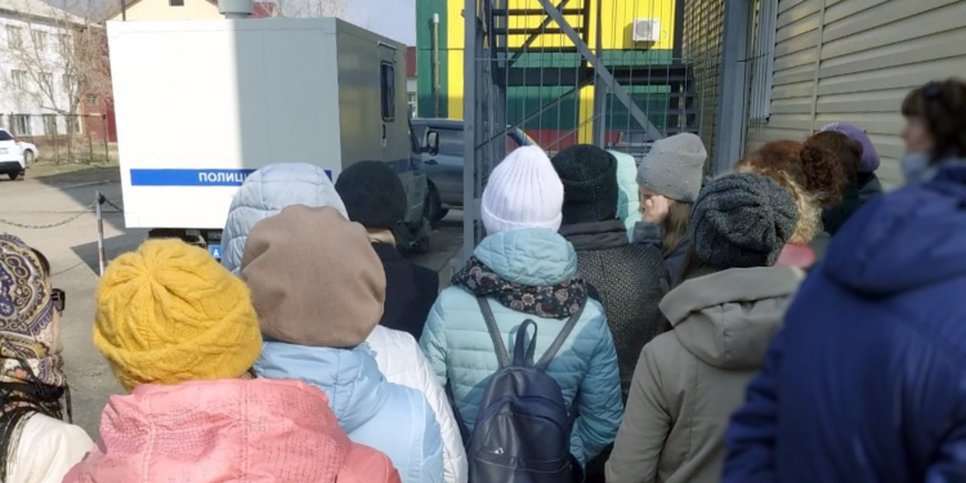Photo: Anton Ostapenko is being taken to a pre-trial detention center in Sharypov (April 2019)
Photo: Anton Ostapenko is being taken to a pre-trial detention center in Sharypov (April 2019)
In Sharypov, a believer was imprisoned for 2 months for talking on spiritual topics
Krasnoyarsk TerritoryOn April 24, 2019, Inga Gavritskaya, a judge of the Sharypovsky City Court of the Krasnoyarsk Territory, decided to detain Anton Ostapenko, a 28-year-old power plant driver, for a period of two months. He was detained during mass searches in the homes of believers that took place throughout the city on April 19. According to the investigation, the believer is "the organizer of the activities of an extremist organization" (part 1 of article 282.2 of the Criminal Code of the Russian Federation).
The case was opened on April 19, 2019 by Y. Fedynyak, a senior investigator of the investigation department for the Sharypovsky district of the Investigative Committee of Russia for the Krasnoyarsk Territory. The charges are based on transcripts of conversations about the Bible made on a hidden video camera in the house of one of the believers.
Considering the investigator's petition for Ostapenko's detention, the judge ignored the lawyer's arguments that no instruments or traces of the crime were found during the search in his apartment. The court's decision was not affected by the fact that the accused is characterized positively by everyone who knows him, has never been prosecuted and is caring for his disabled mother.
Searches on April 19, 2019 in Sharypov took place in a total of 10 houses of believers. A similar scheme was used: groups of FSB and Investigative Committee officers blocked peaceful, unarmed people in their homes, took away all their electronic devices and Bibles (including in the Synodal translation), forbade them to talk to each other, and interrogated them. Some were detained and taken to the investigation department. Believers reported that they experienced great stress, some had complicated illnesses.
Law enforcement officers in Sharypov, following their colleagues from other cities of Russia, came to the wrong conclusion that the usual religious activities of citizens (reading the Bible, praying) are "a continuation of the activities of an extremist organization." International organizations, the Human Rights Council and even the President of Russia have repeatedly drawn attention to this vicious practice and its sad consequences.

